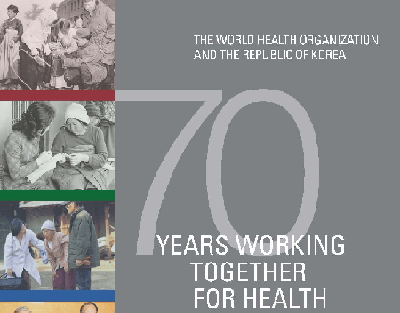The World Health Organisation (WHO) on 7 April marked its 70th anniversary and rightly rolled out drums to celebrate seven decades of spearheading global efforts to rid the world of deadly diseases. The WHO, it would be recalled, succeeded the League of Nations’ Health Organisation and its establishment was approved by the United Nations Conference in San Francisco, USA, in 1945.

The global health body indeed has ample reasons to celebrate. Since its establishment, it has recorded tremendous success in improving life expectancy and taming diseases globally. Its first major accomplishment was the eradication of smallpox, which had long been considered the deadliest and most persistent human infectious disease. Since the elimination of smallpox in 1977, the organisation has turned its attention to eradicating other debilitating tropical diseases like elephantiasis, guinea worm, mother-to-child transmission of HIV and syphilis.
In addition, WHO has been a key player in promoting worldwide disease prevention and health programmes. It has been impressively proactive and innovative in supporting, encouraging and working with partners in health research and gathering data on global health conditions and needs, particularly in developing countries. It has also engaged in collaborations that have seen to the production of vaccines for serious health conditions like Ebola, Polio and most recently malaria.
While we commend the WHO for these and many more remarkable contributions to global health, we equally urge it to do more by reviewing its past and present approaches to health challenges, especially in developing countries, with the ultimate aim of devising more efficient strategies towards achieving its objectives. This is not the time to relent; it is a time to consolidate on its gains over the years and proactively tackle emerging challenges in the global health landscape.
It is also noteworthy that on 7 April when WHO marked its 70th anniversary, the organisation equally commemorated the World Health Day, a day set aside annually to call global attention to major health issues. It was therefore quite apt and relevant that the theme for this year was “Universal Health Coverage: Everyone, Everywhere.”
It is quite commendable that WHO with this choice of theme decided to focus on one of its founding principles which states that access to quality standard health care is a “fundamental human right for every human being without distinction of race, religion, political belief, economic or social condition.”
This is surely the way to go. The WHO should be at the vanguard of promoting and tasking nations to embrace the concept of Universal Health Coverage. It is our belief that to make the needed progress in better healthcare for people and achieve the Sustainable Development Goal (SDG) of ensuring “healthy lives and promotng wellbeing for all ages”, Universal Health Coverage must become the norm in all nations of the world.
The WHO must also do more to improve the global preparedness and control of epidemics, especially in developing countries with weak health systems. The disjointed reactions to recent epidemics like Ebola in African countries should not be happening in this age.
It is imperative to have global pragmatic strategies in place that can help prevent disease outbreaks that constantly turn into epidemics, by being able to respond faster and with tact to health and humanitarian challenges.
It is also commendable that WHO has recognised the increasing incidences of non-communicable diseases like cancer, heart disease and diabetes which are said to account for almost 70 per cent of all deaths. While not neglecting communicable diseases, the WHO should equally focus more on global health campaign to tackle this new reality in the world.














tadalafil buy online – tadalafil tablets buy real tadalafil online